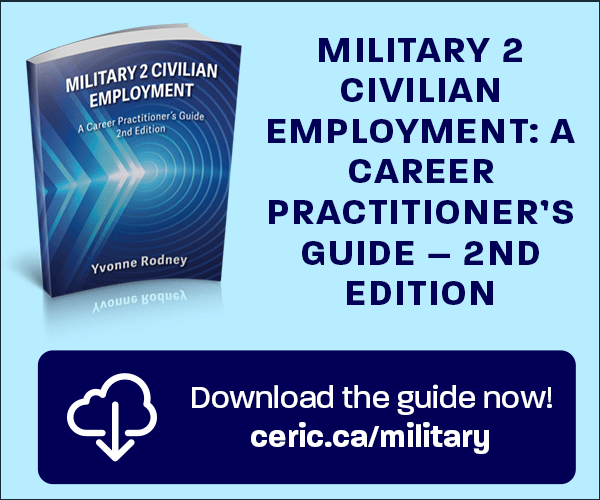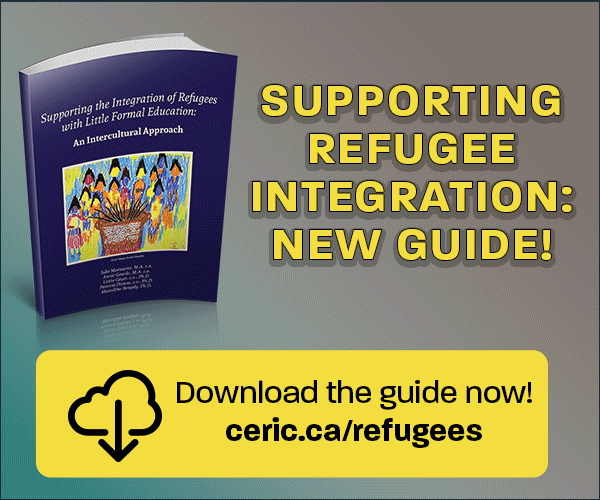Career Prospects for Human Resource Management Professionals in Portugal
DOI:
https://doi.org/10.53379/cjcd.2025.402Keywords:
protean career, boundaryless career, career management, human resources management, human resources management professionals, PortugalAbstract
The research conducted aimed to analyze the attitudes of human resource professionals towards managing their careers. The attitudes of protean and boundaryless careers were investigated, and the extent to which sociodemographic factors, such as salary, gender and academic degree, influence these attitudes. A total of 732 human resources professionals working as employees in private companies in Portugal participated in the study. The methodology involved a non-probabilistic convenience sampling approach, with a detailed survey covering dimensions like self-managed career attitudes, values-driven career attitudes, boundaryless career attitudes and mobility facilitating career attitudes. The results show that most professionals have protean and boundaryless career attitudes. Other research findings show that: (1) those with higher salaries have higher levels of protean and boundaryless career attitudes; (2) male professionals and (3) those with higher education show a higher prevalence of protean and boundaryless attitudes compared to female professionals and those with no higher education. This study sheds light on Portuguese HR professionals' career attitudes. The findings significantly contribute to our understanding of modern career concepts, suggesting avenues for future research.
References
Armstrong, M., & Taylor, S. (2020). Armstrong’s handbook of human resource management practice. A guide to the theory and practice of people management. Kogan Page Publishers.
Arthur, M. B. (1994). The boundaryless career: A new perspective for organizational inquiry. Journal of Organizational Behavior, 15(4), 295–306, https://doi.org/10.1002/job.4030150402
Arthur, M. B., & Rousseau, D. M. (1996). The boundaryless career: A new employment principle for a new organizational era. Oxford University Press. https://doi.org/10.1093/oso/9780195100143.001.0001
Baruch, Y. (2014). The development and validation of a measure for protean career orientation. The International Journal of Human Resource Management, 25(19), 2702–2723. https://doi.org/10.1080/09585192.2014.896389
Baruch, Y., & Quick, J. C. (2007). Understanding second careers: Lessons from a study of US navy admirals. Human Resource Management, 46(4), 471–491. https://doi.org/10.1002/hrm.20178
Bernardo, A. B. I., & Salanga, M. G. C. (2019). Validating the protean and boundaryless career attitudes scales with filipino young adults. Cogent Psychology, 6(1), Article 1671133. https://doi.org/10.1080/23311908.2019.1671133
Briscoe, J. P., Hall, D. T., & DeMuth, R. L. F. (2006). Protean and boundaryless careers: An empirical exploration. Journal of Vocational Behavior, 69(1), 30-47. https://doi.org/10.1016/j.jvb.2005.09.003
Briscoe, J. P., Henagan, S. C., Burton, J. P., & Murphy, W. M. (2012). Coping with an insecure employment environment: The differing roles of protean and boundaryless career orientations. Journal of Vocational Behavior, 80(2), 308–316. https://doi.org/10.1016/j.jvb.2011.12.008
Briscoe, J. P., & Finkelstein, L. M. (2009). The ‘‘new career’’ and organizational commitment: Do boundaryless and protean attitudes make a difference? Career Development International, 14(3), 242–260. https://doi.org/10.1108/13620430910966424
Briscoe, J. P., & Hall, D. T. (2006). The interplay of boundaryless and protean careers: Combinations and implications. Journal of Vocational Behavior, 69(1), 4–18. https://doi.org/10.1016/j.jvb.2005.09.002
Cohen, L., & Mallon, M. (1999). The transition from organizational employment to portfolio working: Perceptions of ‘boundarylessness’. Work, Employment and Society, 13(2), 329–352. https://doi.org/10.1177/09500179922117962
Dessler, G. (2024). Human resource management (17th ed.). Pearson.
De Vos, A., & Cambré, B. (2016). Career management in high-performing organizations: A set-theoretic approach. Human Resource Managmenet, 56(3), 501-518. https://doi.org/10.1002/hrm.21786
De Vos, A., & Soens, N. (2008). Protean attitude and career success: The mediating role of self-management. Journal of Vocational Behavior, 73(3), 449–456. https://doi.org/10.1016/j.jvb.2008.08.007
Direnzo, M. S., Greenhaus, J. H., & Weer, C. H. (2015). Relationship between protean career orientation and work–life balance: A resource perspective. Journal of Organizational Behavior, 36(4), 538–560. https://doi.org/10.1002/job.1996
Greenhaus, J. H., Callanan, G. A., & DiRenzo, M. (2008). A boundaryless perspective on careers. In J. Barling, & C. L. Cooper (Eds.), The SAGE Handbook of Organizational Behavior: Volume I – Micro Approaches (pp. 277–299). https://doi.org/10.4135/9781849200448
Hall, D. T. (1976). Careers in organizations. Goodyear Pub. Co.
Hall, D. T. (1996). Protean careers of the 21st Century. Academy of Management Perspectives, 10(4), 8–16. https://doi.org/10.5465/ame.1996.3145315
Hall, D. T. (2002). Careers In and Out of Organization. Sage Publications, Inc. https://doi.org/10.4135/9781452231174
Hall, D. T. (2004). The protean career: A quarter-century journey. Journal of Vocational Behavior, 65(1), 1–13. https://doi.org/10.1016/j.jvb.2003.10.006
Herrmann, A., Hirschi, A., & Baruch, Y. (2015). The protean career orientation as predictor of career outcomes: Evaluation of incremental validity and mediation effects. Journal of Vocational Behavior, 88, 205–214. https://doi.org/10.1016/j.jvb.2015.03.008
Inkson, K. (2006). Protean and boundaryless careers as metaphors. Journal of Vocational Behavior, 69(1), 48–63. https://doi.org/10.1016/j.jvb.2005.09.004
Landis J. R., & Koch G. G. (1977). The measurement of observer agreement for categorical data. International Biometric Society, 33(1), 159-174. https://www.jstor.org/stable/2529310
Mirvis, P. H., & Hall, D. T. (1994). Psychological success and the boundaryless career. Journal of Organizational Behavior, 15(4), 365–380. https://doi.org/10.1002/job.4030150406
Oliveira, M. Z., Zanon, C., Silva, I. S., Pinhatti, M. M., Gomes, W. B., & Gauer, G. (2010). Validação da versão brasileira da escala de atitudes de carreira sem-fronteiras. Arquivos Brasileiros de Psicologia, 62(3), 106-114. http://pepsic.bvsalud.org/scielo.php?script=sci_arttext&pid=S1809-52672010000300012
O’Sullivan, S. L. (2002). The protean approach to managing repatriation transitions. International Journal of Manpower, 23(7), 597–616. https://doi.org/10.1108/01437720210450789
Segers, J., Inceoglu, I., Vloeberghs, D., Bartram, D., & Henderickx, E. (2008). Protean and boundaryless careers: A study on potential motivators. Journal of Vocational Behavior, 73(2), 212–230. https://doi.org/10.1016/j.jvb.2008.05.001
Sullivan, S. E., & Arthur, M. B. (2006). The evolution of the boundaryless career concept: Examining physical and psychological mobility. Journal of Vocational Behavior, 69(1), 19–29. https://doi.org/10.1016/j.jvb.2005.09.001
Susanto, P. C., Soehaditama, J. P., & Benned, M. (2023). Determination of Motivation and Career Development: Analysis of Training, Competence. Proceeding International Conference on Religion, Science and Education, 2, 273–279. https://sunankalijaga.org/prosiding/index.php/icrse/article/view/921
Ulrich, D., & Dulebohn, J. H. (2015). Are we there yet? What’s next for HR?. Human Resource Management Review, 25(2), 188–204. https://doi.org/10.1016/j.hrmr.2015.01.004
Vardy, Y., & Kim, S. H. (2007). Considering the darker side of careers: Towards a more balanced perspective. In H. P. Gunz, & M. A. Peiperl (Eds.). Handbook of Career Studies (pp. 502–510). SAGE Publications Inc. https://doi.org/10.4135/9781412976107
Volmer, J., & Spurk, D. (2011). Protean and boundaryless career attitudes: Relationships with subjective and objective career success. Zeitschrift für ArbeitsmarktForschung, 43(3), 207–218. https://doi.org/10.1007/s12651-010-0037-3
Waters, L., Briscoe, J. P., Hall, D. T., & Wang, L. (2014b). Protean career attitudes during unemployment and reemployment: A longitudinal perspective. Journal of Vocational Behavior, 84(3), 405–419. https://doi.org/10.1016/j.jvb.2014.03.003
Waters, L., Briscoe, J. P., & Hall, D. T. (2014a). Using protean career attitude to facilitate a positive approach to unemployment. In M. Coetzee (Ed.). Psycho-social career meta-capacities (pp. 19–33). Springer. https://doi.org/10.1007/978-3-319-00645-1_2
Wiernik, B. M., & Wille, B. (2018). Careers, career development, and career management. In D. S. Ones, N. Anderson, C. Viswesvaran, & H. K. Sinangil (Eds.). The SAGE Handbook of Industrial, Work and Organizational Psychology (pp. 547–585). SAGE Publications Ltd. https://doi.org/10.4135/9781473914964
Wolff, H.-G., & Moser, K. (2009). Effects of networking on career success: A longitudinal study. Journal of Applied Psychology, 94(1), 196–206. https://doi.org/10.1037/a0013350

Downloads
Published
How to Cite
Issue
Section
License
Copyright (c) 2025 Canadian Journal of Career Development

This work is licensed under a Creative Commons Attribution-NonCommercial-NoDerivatives 4.0 International License.
















